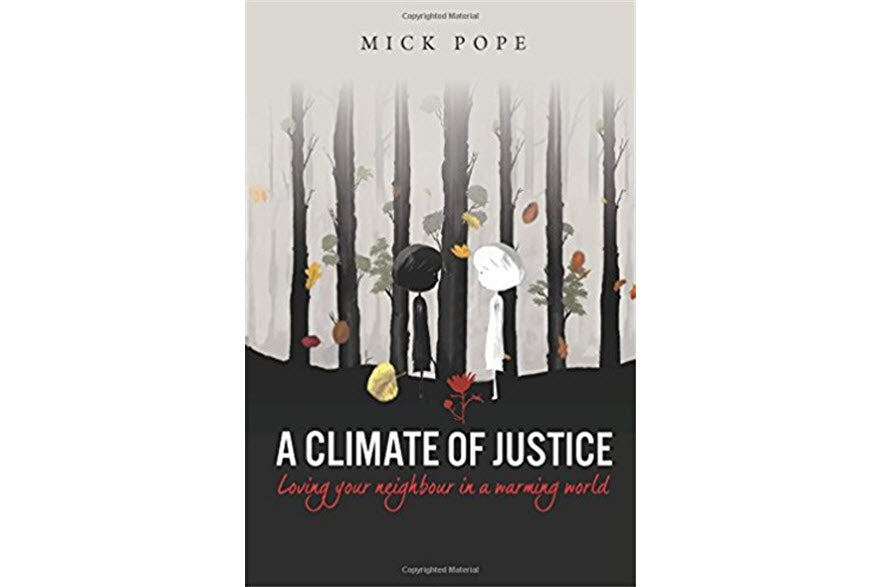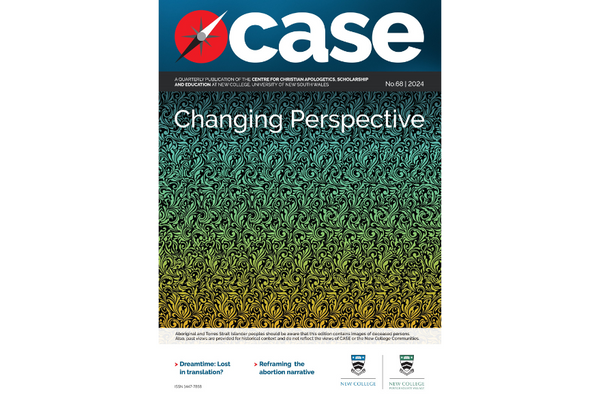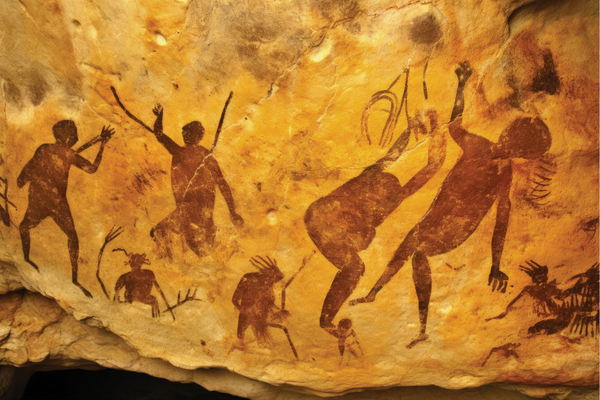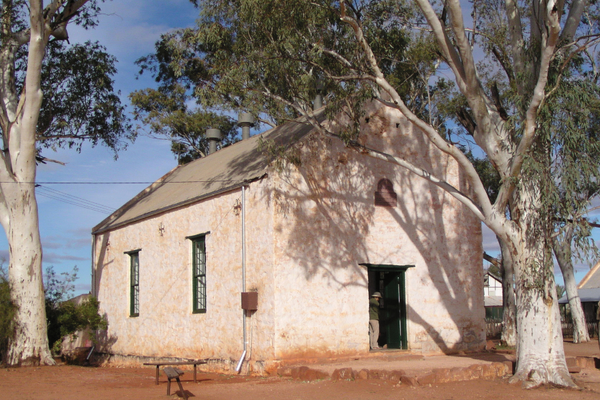Book review: A Climate of Justice

Reviewer: Dani Scarratt
Mick Pope, A Climate of Justice: Loving your neighbour in a warming world (Morning Star Publishing, 2017) 136pp
It’s probably safe to say we all want the world to be a better place, and most of us are willing to help with the project. There’s certainly plenty of scope for everyone’s efforts. We want to alleviate poverty, racism, injustice against First Peoples, homelessness, refugee crises, sexism, slavery, domestic violence, inequality in access to health care and education… the list goes on. Climate change is just another dot point to add to that list. Isn’t it?
While most of us agree that the attempt to eliminate injustices is a good thing—indeed, something Christians are bound to in neighbourly love—the problem of how to do so is a less unifying proposition. Dr Mick Pope’s A Climate of Justice: Loving your neighbour in a warming world, offers some big picture guidance, and with backgrounds in meteorology, theology, and activism, he is well placed to offer it.[i]
The book is written for Christians, and driven by Pope’s conviction that justice matters, and that for Christians the pursuit of justice is obligatory. Love of justice is at the core of God’s character, and commanded of his people. In a detailed discussion of the parable of the Good Samaritan, Pope shows that Jesus’ understanding of which neighbours are to be loved extends radically beyond his hearers’ expectations. The Great Commission to go and make disciples makes it evident that such teachings of Jesus are to be an ongoing concern for Christians.
The central argument of A Climate of Justice is that climate change is inseparable from the traditional justice issues Christians are concerned for, such as poverty, refugees, and slavery. While the likes of these have been with us always, Pope shows how they are exacerbated by the rapid warming of the world, directly and indirectly, and particularly for those who are already disadvantaged. He concludes that taking action on climate change should not, therefore, be considered secondary to the more explicit biblical call to care for the poor and needy; rather ‘if we don’t deal with climate change, all of our other justice concerns will be affected’ (p30).
Refugees and asylum seekers are a case in point (chapter 4). It is easy to draw a direct line from climate change to ‘climate refugees’ where sea level rises make low-lying islands unable to produce the food necessary to sustain life. The Pacific Islands are a clear example of this kind of displacement, but there are also less direct impacts. Pope gives the example of Syria, where a complex mix of factors have forced an estimated 4.5million Syrians to flee Syria, and another 6.5million to be internally displaced. An increase in the frequency and severity of drought over past decades is part of this mix, and water shortages have aggravated political disputes over water access, reduced food production, raised food prices, and caused mass migration from rural to urban areas, leading to increased homelessness, unemployment, and poverty.
Other chapters look at the impacts of climate change on poverty and aid (chapter 2), modern slavery (chapter 3), and the gaps between indigenous and non-indigenous Australians in health, education and employment (chapter 5).These discussions also provide a great deal of helpful information about these areas more generally: the background to current issues, what is being done at various levels, and practical suggestions for how people can be involved. This is interwoven with biblical exegesis, and Pope does an admirable job of encouraging Christian engagement while avoiding fear-mongering, guilt-tripping, or pie-in-the-sky idealism.
Though short, A Climate of Justice covers a lot of ground. The scope is global, but there is particular attention paid to the local context and policy, making it particularly valuable reading for Australian Christians. Whether young and idealistic or world-weary and cynical, this book challenges and helps equip readers to seek justice for those in need, and to love our neighbours in word and deed as we wait for the day when Christ returns and all will be made right, once for all.
[i] This book is a sequel to Mick Pope and Claire Dawson’s A Climate of Hope: Church and mission in a warming world (UNOH Publishing, 2014).
Leave a comment
Comments will be approved before showing up.



